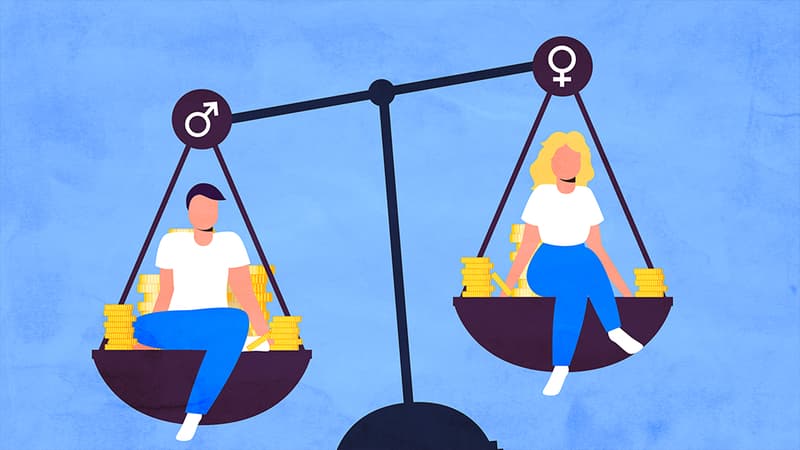A small revolution is preparing. By June 7, 2026, France must transpose to its national law a European directive on salary transparency. Its objective is to reduce the inequalities salaries between women and men. According to Insee, in France, at the same time of work, women are still paid 14% less than men.
“In the same work, the same remuneration. And to achieve equality of remuneration, transparency is needed. Women should know if their employer treats them fairly,” said the president of the European Commission, Ursula Von LEIEN, at the time of the publication of this Directive. And implies significant changes for employees and companies.
• A wage range shown
The first change refers to job search. Companies will have to inform the upstream candidates of the first interview in the salary range planned for the proposed position.
This leaves two options for employers: either they show a salary range directly in the job offer, or communicate it directly to the candidates who sent their CV before the first interview.
• Employees can know the salary of their colleagues
The second obligation is undoubtedly the one that will shake back the commercial life. From 2026, employees can ask very specific questions about the remuneration of their colleagues. In detail, they may request and receive written information (ventilated by sex) about the average salaries of their colleagues who do “the same work or work of the same value”.
This provision “aims to ensure that workers can compare themselves”, including other sex colleagues, who have an equivalent position. This will help employees know where they position themselves. But the whole question will be how these categories will be defined and how big they will be.
The directive imposes a “detailed” response and the employer’s obligation if a difference in remuneration is observed without being justified by non -sexist objective criteria to “remedy” the situation.
The employee can also request details about the salary development criteria. The information must be communicated within a “reasonable time” and, at most, within two months and the employee will have the right to request additional information.
• Companies will have an obligation of transparency
The third provision of this directive refers to the company’s general transparency policy. Already in 2027, companies with more than 150 employees will have to publish specific reports on the gaps in the sexes. This obligation will be extended to companies with 100 to 149 employees in 2031.
French companies with more than 50 employees are already subject to the professional equality index between women and men, which could evolve.
In case of salary gap equal to or greater than 5% between men and women in the same category, and if it is not justified by objective and non -sexist criteria, the company will be obliged to carry out an evaluation of the remuneration with the personnel representatives. It will be a matter of identifying and correcting these inequalities.
Source: BFM TV


